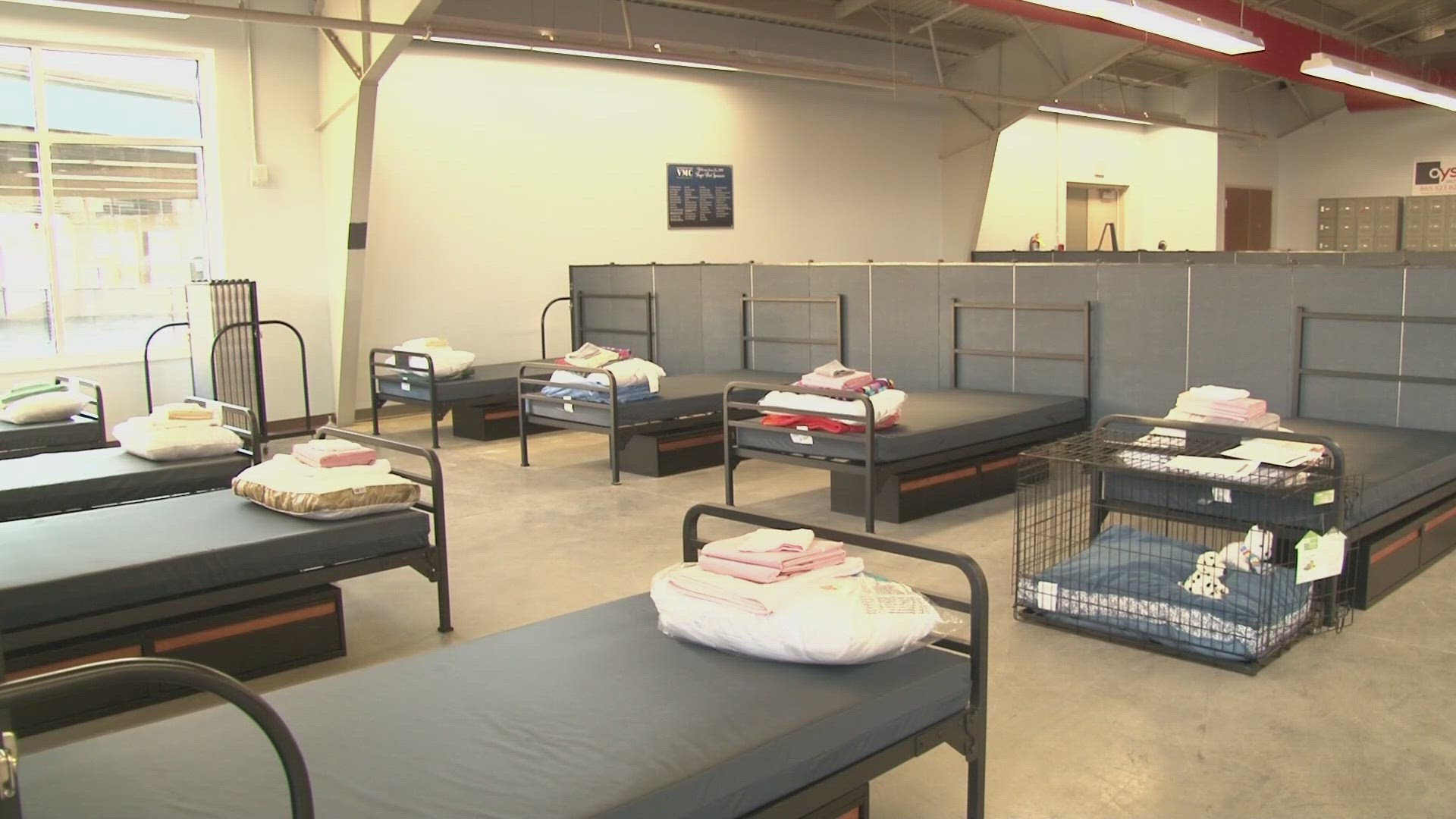KNOXVILLE, Tenn. — The Volunteer Ministry Center plans to stop running the Foyer in March. The nonprofit said it can't afford to keep managing the overnight shelter.
Nonprofits like VMC often run shelters as part of community programs and Tracey Williams, the nonprofit's CEO, said it's closing the shelter as a business decision. Gabrielle Cline, the Chief Clinical Services Officer of VMC, said there's a huge housing problem in Knoxville.
"In the past, it used to take people about three months to get into affordable housing and now it can take nine months to a year," Cline said. "Folks [at the Foyer] just really spend the night and then they are working towards housing with case management during the day."
The Foyer is a low-barrier housing shelter with 30 beds focusing on helping people experiencing emergencies during nighttime. It's meant to be a temporary solution for people who may not have any other safe place to sleep.
Williams said with less funding and higher expenses, it can be challenging to run the shelter and they can no longer afford it.
"Last year, we are functioning at about $100,000 loss," Williams said. "So, obviously, as a nonprofit, when you don't have revenue streams for these programs, you do rely on community support. And I want to add — we've been very blessed to have great partners like United Way, the city, the county, St. John's Foundation, to help us with those funds. But when you come up $100,000 short, it's time to make a business decision."
On top of the losses, Williams said this time VMC didn't meet funding requirements for the shelter.
Knoxville leaders also sent a statement to WBIR. The full statement is available below.
"I want to clarify that the City of Knoxville remains fully committed to a low-barrier shelter for our community. We have not changed anything - not the funding or the terms of the contract - HUD’s rules for low-barrier shelters also remain exactly the same.
Recently, VMC informed us that they were no longer interested in operating the Foyer. It is complex work - hard to staff and hard to operate, and VMC has decided to focus their energies on other housing strategies.
We are thankful that VMC operated the Foyer the last several years.
We are already working with the Joint Office on Housing Stability to find a new provider, and hope there will be no lapse in services."
Williams also said cost wasn't the only concern. She said VMC had difficulty staffing it, and finding people to work at the shelter overnight. Serving people who are already engaging in social services and finding them homes are areas the VMC focuses on, Williams said, and the nonprofit is working to keep that cycle going.
She said it would align with VMC's goals if people continually used the shelter without engaging in social services.
"To receive these funds, there should be no limitations on putting those people in the shelter. It would be a no-barrier shelter, meaning you can come in without any accountability or any results or any progress in achieving housing," Williams said. "We require as a matter of our programming that you do take those steps, with our support, to seek out case management so that we can figure out what got you into homelessness to begin with, and what we can do to help you get into housing."
The ministry has one of the lowest barriers to receiving their services, Williams said, and they do expect that people are going to come in with mental health issues and substance abuse issues.
The nonprofit also has weapon restrictions to make sure everyone in the shelter stays safe.
"Nobody should be on the street," Williams said. "Everybody on the street is somebody's mother, father, uncle sister, who has just experienced a number of hardships that any one of us can find ourselves in on any given day."
It all comes down to one thing, which Cline said is the root of the problem.
"My hope would be that we can just greatly expand affordable housing in our community so that people can end their experience of homelessness," Cline said.

